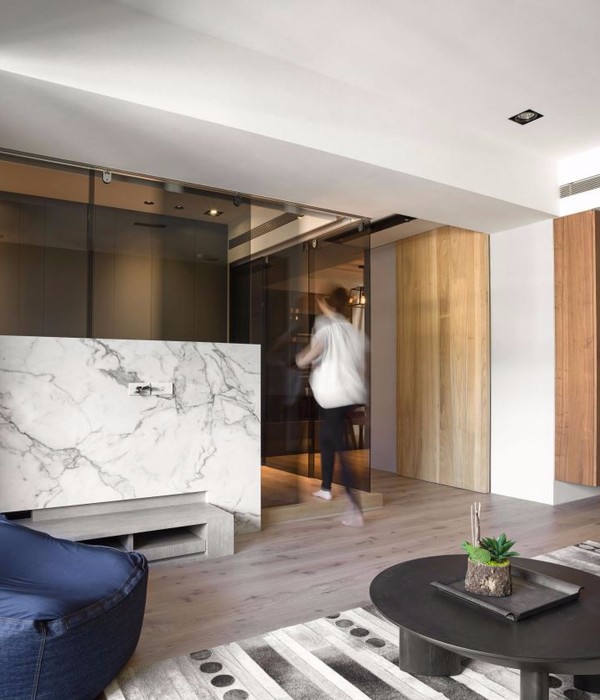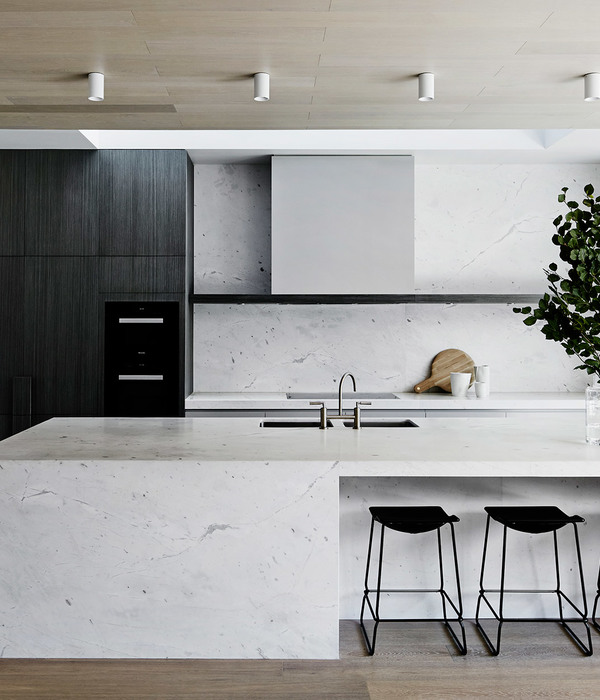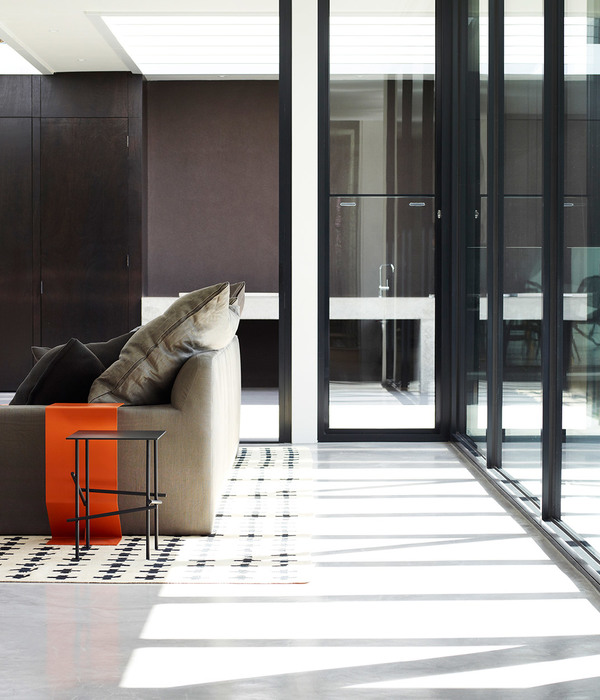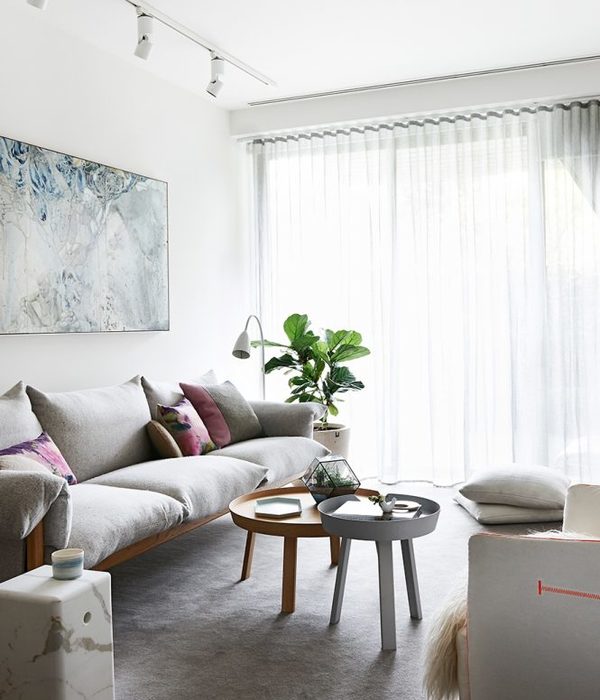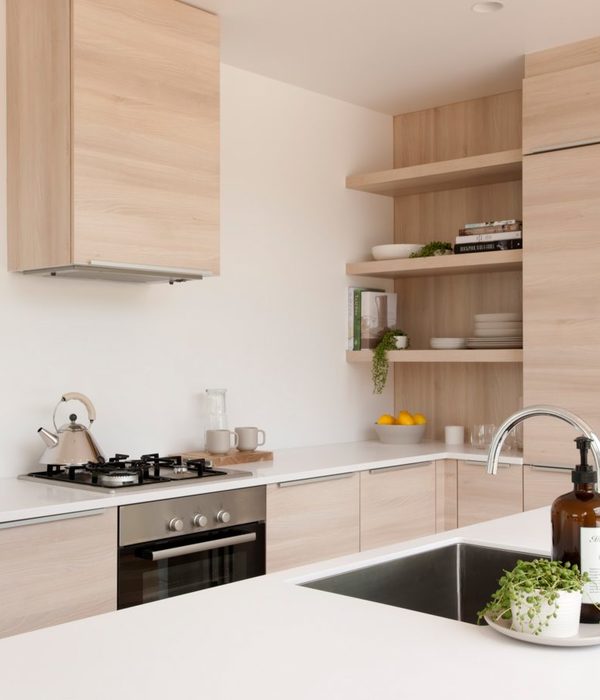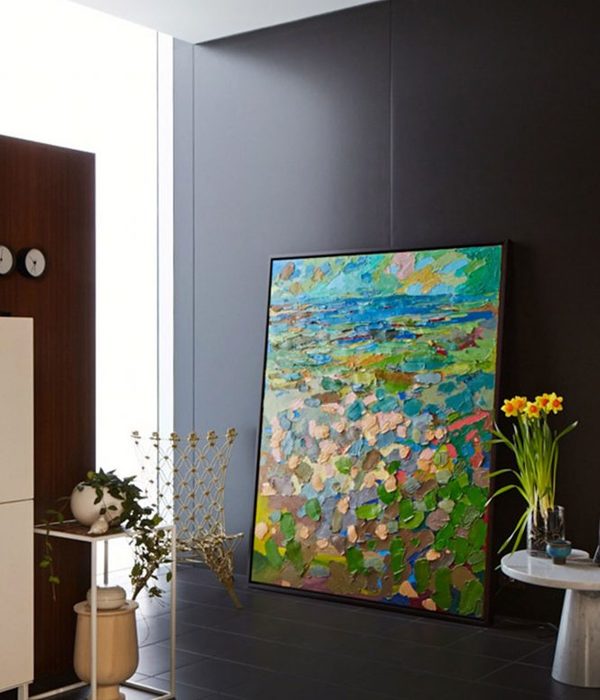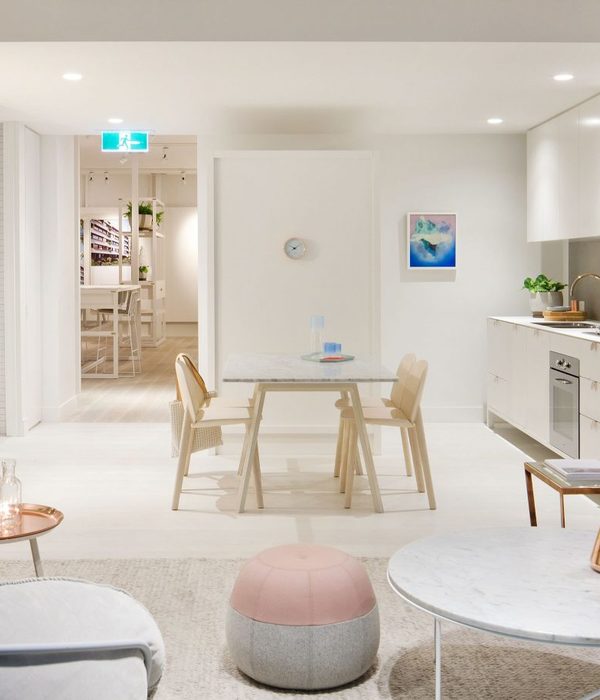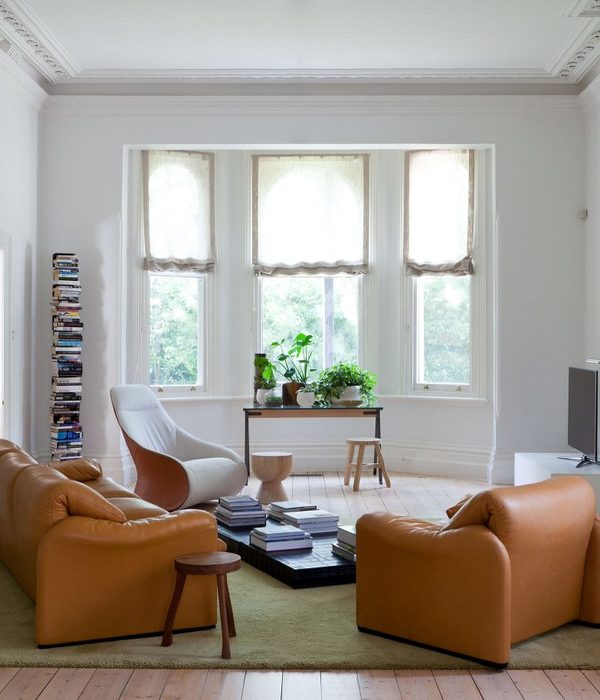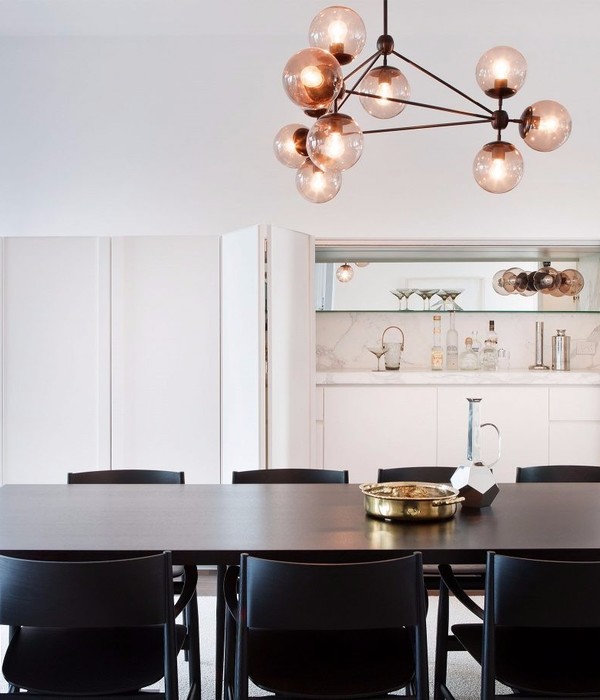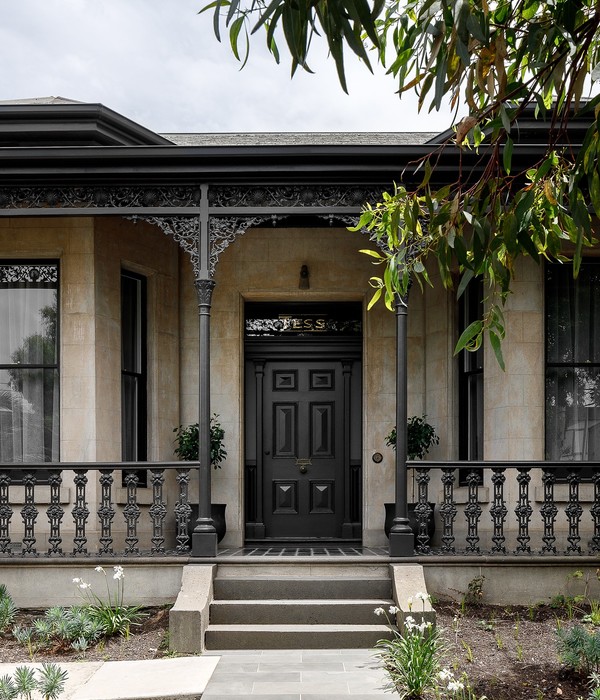The house is situated within a residential borough among pre-WWII family residences and fully utilises the numerous benefits of its location. It provides its occupants with a sufficient amount of privacy in spite of a relatively compact plot and close proximity to the neighbouring buildings. The use of large glazings enabled a visual integration of the living space with a surrounding garden. A meticulously carved form of the building is shifted deep into the plot. This decision results in an impressive window view which frames greenery and sky while isolating the sight of next-door houses.
A restrained design embraces ideas of minimalism with its simplicity and white facade while being influenced by local architecture. It encompasses a collection of semi-open spaces mutually merging with each other in both vertical and horizontal orientations. They collectively focus around the heart of the house in the form of a living tree.
The final shape has been defined by diagonally cut corners which created roof-covered loggias on either side. Their ceiling-high windows in combination with skylights on the roof pour inside an abundance of daylight.
{{item.text_origin}}

